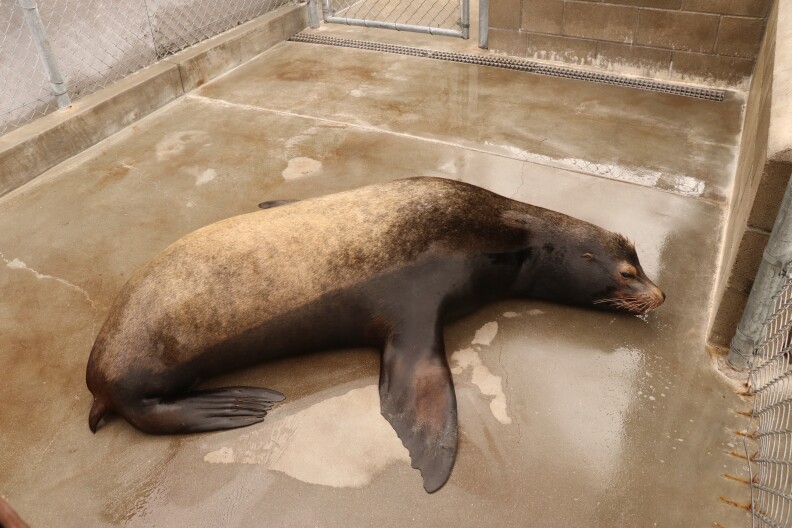LA County Seeks Long-Term Solution as Toxic Algae Threatens Marine Life

The L.A. County Board of Supervisors unanimously passed a motion Tuesday to help address a growing crisis of toxic algae sickening and killing sea life.
In the past three months, hundreds of pelicans, sea lions, and dolphins have been affected. and even some whales — have either fallen ill or died from domoic acid poisoning, a natural toxin found in specific kinds of algae.
Authorities indicate that this might be the most severe toxic algae bloom Southern California has experienced. This outbreak not only harms the environment but also increases aggression in wildlife, raising public safety issues. Due to the severity of the situation, those who rescue affected marine life are finding it challenging to cope with the high number of ill creatures.
"Having these types of stranding events year after year really taxes our resources," stated Dave Bader, a marine biologist at the Marine Mammal Care Center in San Pedro.
The nonprofit is the sole group sanctioned by the National Oceanic and Atmospheric Administration (NOAA) to address issues concerning stranded marine mammals in Los Angeles County. This responsibility has left them overwhelmed amid the recent toxic spill, resulting in a financial shortfall of approximately $750,000.
A regional approach
The proposal put forth by supervisors Lindsey Horvath and Janice Hahn mandates that city and county officials along with other involved parties convene within 60 days to develop a long-term strategy. Additionally, it instructs the staff to allocate up to $600,000 for the Marine Mammal Care Center. Supervisory District of Horvath has already provided an urgent funding amounting to $100,000 towards this rescue and rehab facility.
”This must be a county-wide effort, as well as a regional effort beyond the county alone,” Horvath said at Tuesday’s board meeting.
About 60% of the strandings the Marine Mammal Care Center responds to are on county beaches. Stressing budget issues, Supervisor Holly Mitchell agreed that coastal cities should also help fund the need.
“ This isn't district specific, but it's also not just county, so the other reason I held the item is to make sure that all of the coastal communities are going to put some skin in the game too,” Mitchell said.
How does the bloom compare with past years?
These destructive outbreaks typically happen every three to seven years, yet they've occurred annually for the past four years, according to Bader from the Marine Mammal Care Center. Over recent decades, these blooms have been observed have increased in both frequency and severity .
In 2023, Los Angeles County faced its most severe case of domoic acid poisoning ever recorded locally, causing yet another marine rescue organization within the county to collapse financially. Following this incident, the Marine Mammal Care Center located in San Pedro took on additional responsibilities to compensate for the loss.
“We have an emergency right now, and we're doing our best to manage that, but this isn't about a one-off emergency,” Bader said. “This is something that's happening time and time again, and we need to ... have better resources to be able to respond to these increasing needs.”
Why is this happening?
Bader said the root cause is that climate change is creating conditions for more toxic blooms.
"This needs to serve as an awakening to genuinely tackle climate change," Bader stated.
Human activities are essentially altering the chemical composition of the sea. As we release increased amounts of carbon emissions into the air, the ocean — which acts as a carbon reservoir — absorbs greater quantities of carbon dioxide.
“As carbon dioxide dissolves into the sea, it reduces the seawater’s pH level,” Bader explained. “This phenomenon is known as ocean acidification.”
Research is finding That acidification might benefit harmful algae. Additionally, we pour numerous pollutants into the sea, including fertilizers and various chemicals, which introduce extra nutrients that specific toxic algae proliferate upon.
What we truly require is acknowledging that climate change is not some distant issue," Bader stated. "Its effects are being experienced right now.

No comments